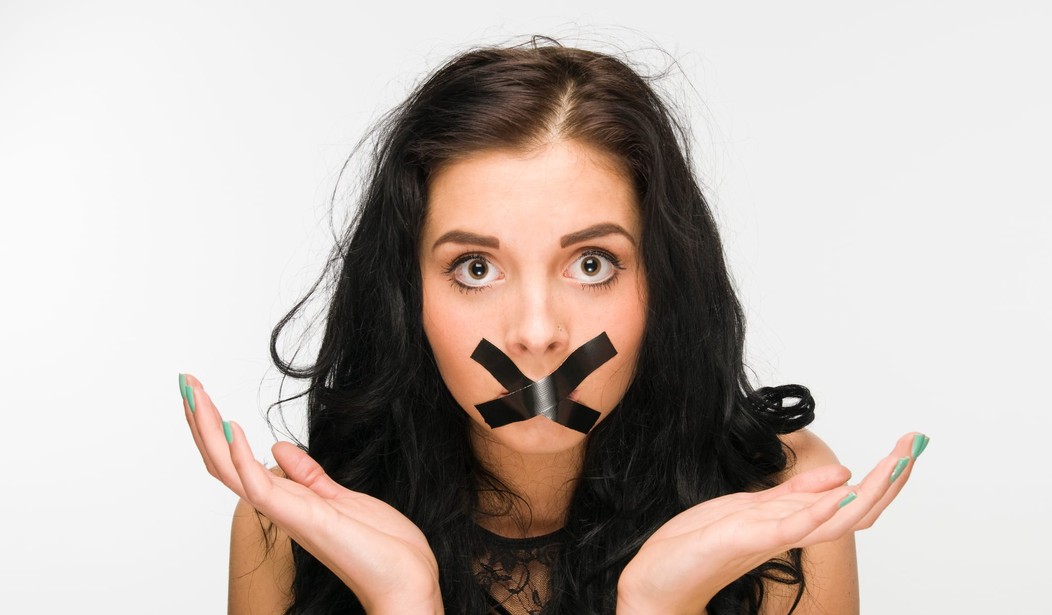At University of Wisconsin, Madison, “microaggressions” qualify as “bias incidents.” Students can report them in a “Bias Incident Report” which is reviewed by the “Bias Response and Advocacy Coordinator” and the Dean of Students Office. Although the report covers a variety of bias incident types — including physical assault and vandalism — Zachary Petrizzo, of Campus Reform, reports that “the majority of incidents [reported] were “racial insults, microaggressions, and/or derogatory language.”
The university provides its students with some helpful examples of what constitutes a “microaggression.” For example, a valid reason to file a Bias Incident Report might be if someone asks a person, who happens to be black, “Why do you have to be so loud /animated?” Another valid submission might be to report that someone had asked a person of color a question such as, “Are you sure you were being followed in a store? I can’t believe it.” The school also lists “Faculty of color being mistaken for a service worker” as legitimate grounds for filing a report.
I (thank goodness) am not a student at UW, Madison, but, even so, I am prepared to file one of these reports. The school defines a “microaggression” as an “everyday slight, put down, indignity, or invalidation directed toward a marginalized group.” Based on this definition, I believe I have grounds to report UW, Madison.
The school is clearly making assumptions about people of color. The examples above indicate that the school believes black people are “loud” and overly “animated.” It also shows that they think people of color are, for some reason, more worth following in a store, and that they are more likely to be service workers. (Also, what’s so wrong with being a service worker? But I digress.)
If UW, Madison didn’t hold these views, why, upon hearing someone ask someone else to stop being so “loud/animated” would they assume it was because of their skin color (rather than because the person was just being too loud and bothering everyone while they were trying to study)? Why would they assume that someone’s disbelief about their fellow student being followed was because of their skin color (rather than simply an expression of disbelief that someone would do that)? And why would they assume that the mistaken identification of the faculty member was because of his race (and not his clothing, demeanor, or the fact that he was sweeping the hallway with a broom)?
If “microaggressions” are “slights” or “put downs” based on a person’s membership in a “marginalized group,” then surely the kinds of assumptions UW, Madison is making would qualify. (Call the Bias Response Team!)
But all joking aside, this really seems to me like a potentially dangerous boy-who-cried-wolf situation. If every last slight, miscommunication, and misunderstanding is reported — and investigated — as if it was on par with serious infractions (like physical assault, harassment, etc.) then how will the university plausibly be able to tell the difference? Or worse, will they even know that there is one?
The truth, I think, is that policies like these aren’t really about keeping members of marginalized groups safe. They’re about keeping members of majority groups in line. Think like us, follow our rules, behave like us, or we’ll report you. If this sounds extreme, consider this: the school also lists “Being forced to choose male or female when completing forms/paperwork” and “Not calling someone by their preferred gender pronouns” as reportable “microaggressions.” The debate around gender pronouns and who should (or shouldn’t) have to use people’s “preferred pronouns” is by no means a settled one in this country. Allowing disagreement with this practice to be written up as an infraction is a fairly clear statement of the purpose of this type of policy.
Hate, and bias, and prejudice exist. Those who commit acts based on them ought to face consequences. But what happens when the definition of “bias” no longer means what it should? What then? Ask UW, Madison. They already know.









Join the conversation as a VIP Member